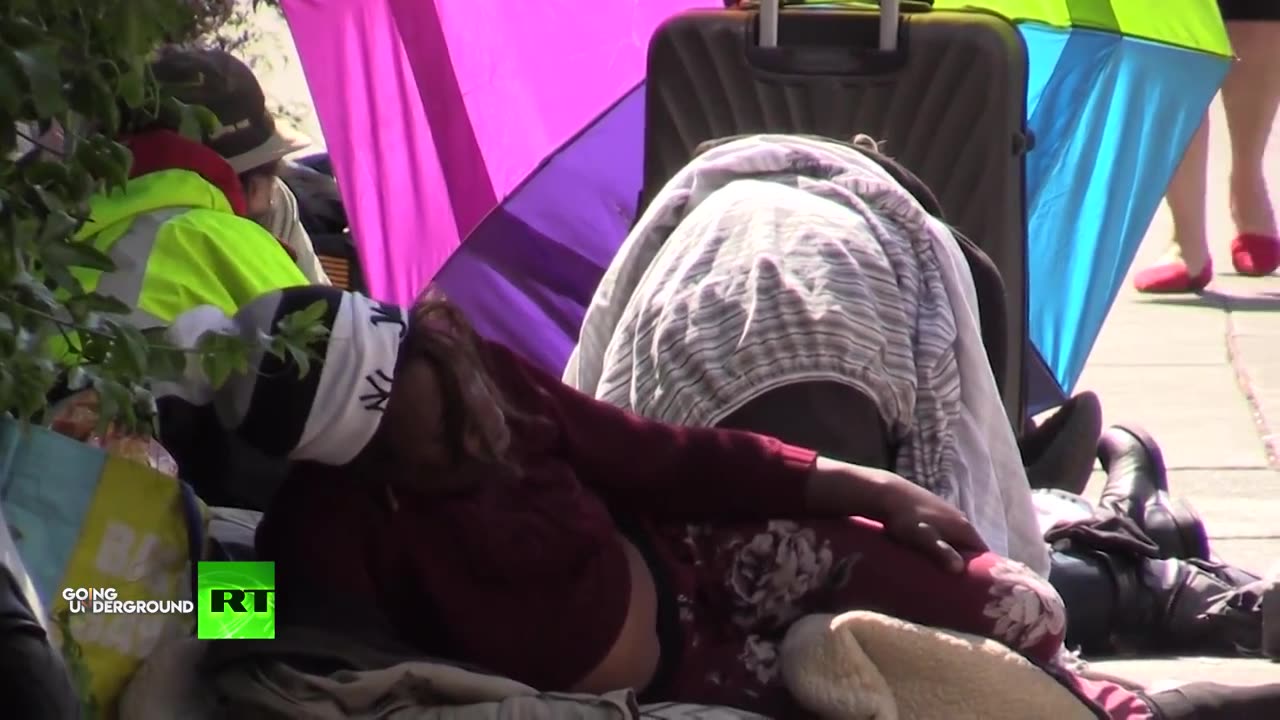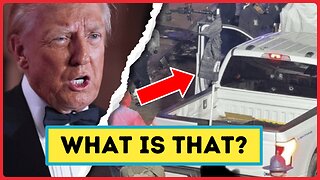Premium Only Content

Sanctions Are Damaging Human Rights in Iran, Venezuela, Syria! (UN Rapporteur Alena Douhan)
We speak to the UN Special Rapporteur on the Negative Impact of the Unilateral Coercive Measure on Human Rights Alena Douhan. She discusses the passing of her predecessor Idriss Jazairy who had previously appeared multiple times on Going Underground, the impact of US sanctions on countries such as Venezuela, Iran and Syria, how sanctions are preventing the purchase of vital medical equipment during Coronavirus in Iran, how unilateral sanctions are attacking fundamental human rights such as the right to health and the right to education, why the fear of sanctions violates human rights as sanctions themselves and much more!
“We contacted the European Commission about the allegations in this segment and the Lead Spokesperson for Foreign Affairs and Security Policy sent us this statement:
On the US sanctions and their impact on humanitarian assistance: The EU was very clear in its reaction to the recently announced unilateral US sanctions against Iran: the potential impact of these US measures on humanitarian trade is a matter of concern for the EU. The US sanctions – like any other sanctions – must not stand in the way nor impede the global fight against COVID-19 or the delivery of humanitarian aid. The EU considers the extraterritorial application of unilateral restrictive measures unlawful and contrary to international law.
On EU actions in humanitarian area: The EU is looking for ways how to advance trade an provide humanitarian assistance even under the circumstances created by imposition of sanctions. As part of the EU’s ongoing efforts, the European Commission for example just launched two online platforms to support European economic operators, in particular Small and Medium-sized Enterprises (SMEs), to engage in legitimate trade with Iran. The EU was also one of the first to announce humanitarian assistance to Iran in relation to the dramatic spread of coronavirus earlier this year. High Representative for EU Foreign Policy Josep Borrell spoke about it recently in the European Parliament, where he said: “As European Union, we were quick to provide humanitarian support, with a [humanitarian] air bridge, and we keep strongly advocating – together with the UN Secretary General [António Guterres] - that sanctions must not impede humanitarian trade. Together with EU Member States we also keep looking at ways to encourage more legitimate trade between the EU and Iran, including through INSTEX.” (feel free to use the audio and video from his remarks - see the entire speech here).
On EU position regarding trade as a result of the JCPOA: The EU has taken a series of concrete actions to continue enabling legitimate trade with Iran. The EU updated its Blocking Statute in August 2018 to provide legal protection to European companies that are interested in doing legitimate business with Iran. The EU has also supported the setting up of INSTEX (Instrument in Support of Trade Exchanges) and helped making it operational. The EU is determined to continue pursuing efforts to enable legitimate trade with Iran, including through supporting the work of the E3 on INSTEX. This ongoing work is to make sure that the effects of the sanctions are minimised for the companies that want to continue to do legitimate business with and in Iran and that they can still have access to the necessary finance.
On Venezuela – we usually do not comment on reports by various NGOs or think tanks. But it is highly inappropriate to attribute deaths of people in Venezuela to EU sanctions. In fact it is very wrong, since the EU sanctions are targeted against the members of Maduro regime and on arms and equipment used for repression against the civilian population. This means, the EU sanctions are actually targeted against those who are responsible for the dramatic situation of the civilian population in Venezuela.
The EU sanctions against Maduro regime were introduced in November 2017. A total of 36 individuals are under sanctions. This includes an embargo on arms and on equipment for internal repression as well as a travel ban and an asset freeze on listed individuals. You can find more on the sanctions regime here: www.sanctionsmap.eu and for specific sanctions against Maduro regime in Venezuela here - https://www.sanctionsmap.eu/#/main/details/44/?search=%7B%22value%22:%22%22,%22searchType%22:%7B%7D%7D
These restrictive measures are intended to foster a peaceful, political and democratic solution, through credible, transparent and internationally monitored presidential elections, leading to the restoration of democracy, rule of law and human rights in Venezuela. The EU sanctions against the Maduro regime are flexible and reversible and designed not to target nor to harm the Venezuelan population.”
-
 32:15
32:15
Going Underground Episode Archive
11 months agoJulian Assange On The Iraq and Afghan War Logs, Google Being 'In Bed' With The State Department
2.42K7 -
 2:07:27
2:07:27
TheSaltyCracker
12 hours agoTrump Tower Bombed w/ Cybertruck ReeEEeE Stream 01-01-25
179K376 -
 8:15:58
8:15:58
FreshandFit
19 hours agoElon Musk BETRAYAL & Mass Censorship On X
226K97 -
 2:25:43
2:25:43
Darkhorse Podcast
19 hours agoLooking Back and Looking Forward: The 258 Evolutionary Lens with Bret Weinstein and Heather Heying
204K214 -
 5:50:16
5:50:16
Pepkilla
18 hours agoRanked Warzone ~ Are we getting to platinum today or waaa
133K7 -
 9:15:09
9:15:09
BrancoFXDC
16 hours ago $9.67 earnedHAPPY NEW YEARS - Road to Platinum - Ranked Warzone
111K4 -
 5:53
5:53
SLS - Street League Skateboarding
5 days agoBraden Hoban’s San Diego Roots & Hometown Win | Kona Big Wave “Beyond The Ride” Part 2
115K14 -
 6:03:57
6:03:57
TheBedBug
21 hours ago🔴 LIVE: EPIC CROSSOVER - PATH OF EXILE 2 x MARVEL RIVALS
111K9 -
 1:12:45
1:12:45
The Quartering
19 hours agoTerror In New Orleans, Attacker Unmasked, Tesla BLOWS UP At Trump Tower! Are We Under Attack?
175K270 -
 1:32:08
1:32:08
Robert Gouveia
20 hours agoNew Year TERROR; Trump Speaks at Mar-a-Lago; Speaker Johnson FIGHT
143K122